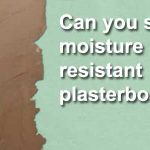In this article we will be looking at the best screws for fixing plasterboard. As well as the reason you should be using a specific type of screw.
There are many different types of screw that you can buy, for a variety of different jobs. Different screws will have many different features, these include:
- The shape of the head – Some of the most common are, counter sunk, bulge head, flat head, etc
- Different types of thread – The main variations are coarse threads and fine threads, but these also include single thread screws, and doubled threaded screws.
- Screw point – This includes several types of sharp point, flat point, and self-drilling
- Material and coatings – Commonly screws are made of steel, stainless steel, or brass. But they can also have coatings, such as zinc plating and galvanised screws
- The screw drive type – There are many different screw head drives. However, the most common are slotted, Philips, pozi, and sometimes torx or hex drive.
This covers most of the common screws you will find, but even then, there are less common types that are not mentioned.
One other thing to consider is the size and length of the screws. Obviously, there is a big difference between a 20mm screw and a 100mm screw.

So, what is the best type of screw for fixing plasterboard?
When fixing into wood, there are specific screws designed for fixing plasterboard. These are known as drywall screws, and they are usually black in colour. This is due to a phosphate coating, which protects the screws from rust.
The main features of a drywall screw
Drywall screws are the best screw for plasterboard due to their design and features, which make them ideal for this particular job.
The features of a drywall screw can be seen below:
- Head shape of a drywall screw – Drywall screws have a bulge head, which is a variation of a counter sunk screw.
The underside of the head is curved, as opposed to straight in a standard counter sunk screw. This makes it more suitable for softer materials. The design allows the screw to easily sit flush with the finished plasterboard.
As a general rule, you would aim for the screws to finish around 1-2mm below the surface. This makes them easier to fill and skim over. - Drywall screw thread type – Drywall screws are a coarse threaded screws. The coarse thread makes them ideal for screwing into wood. The screws pull in very quickly and provide a strong secure fixing for the plasterboards.
- Screw point – Drywall screws have a sharp point; this also enables them to have quick pick up into the timber.
- Material and coating of drywall screws – Drywall screws are made of hardened brittle steel with a phosphate coating. They are mainly designed for softwood and will often snap when used for fixing in harder materials. The phosphate coating provides protection from corrosion. This protects from moisture content in the timber.
- Drywall screw drive type – Drywall screws use a Philips drive. This reduces the risk of the screws pulling through the plasterboard. Philips drive screws tend to cam out when they come under resistance.
Something like a pozi drive screw would be far more likely to pull straight through the plasterboard.
What size are plasterboard screws?
Drywall screws come in several different lengths; these range from 25 – 75mm. The size you choose will depend on the specific job.
As a general rule, you should aim to have at least 25mm fixed into the timber in walls. This should be even longer for plasterboard on ceilings. It is quite common to use 50mm drywall screws when fixing boards to a ceiling.
Other things that will affect the length you choose, are the thickness of the plasterboards and whether you are over boarding an existing subsurface.
What are fine thread drywall screws?
Fine thread drywall screws are specifically designed for metal studwork and ceiling systems. They have a sharp point, which means they can screw straight into metal studwork without pre-drilling.
These screws are silver in colour, as they do not have the same phosphate coating as standard drywall screws. However, they are carbon steel and corrosion resistant.
Usually, this type of screw is more common in a commercial setting, where large metal ceiling and wall systems are installed.
It is not advised to use fine thread drywall screws when fitting to timber. They won’t grab the timber as well as a coarse threaded screw. Also, due to the fine thread, they would take longer to screw in. Therefore, a coarse thread screw would be far superior for both performance and installation.
Conclusion
As you can see, a black coarse thread drywall screw, is usually the best screw for plasterboard. The only caveat to this, would be when screwing into metal. In this scenario, a fine thread version would be your best option.
Finally, always ensure that you select the correct length. This will allow you to get a solid fixing into the surface below.




